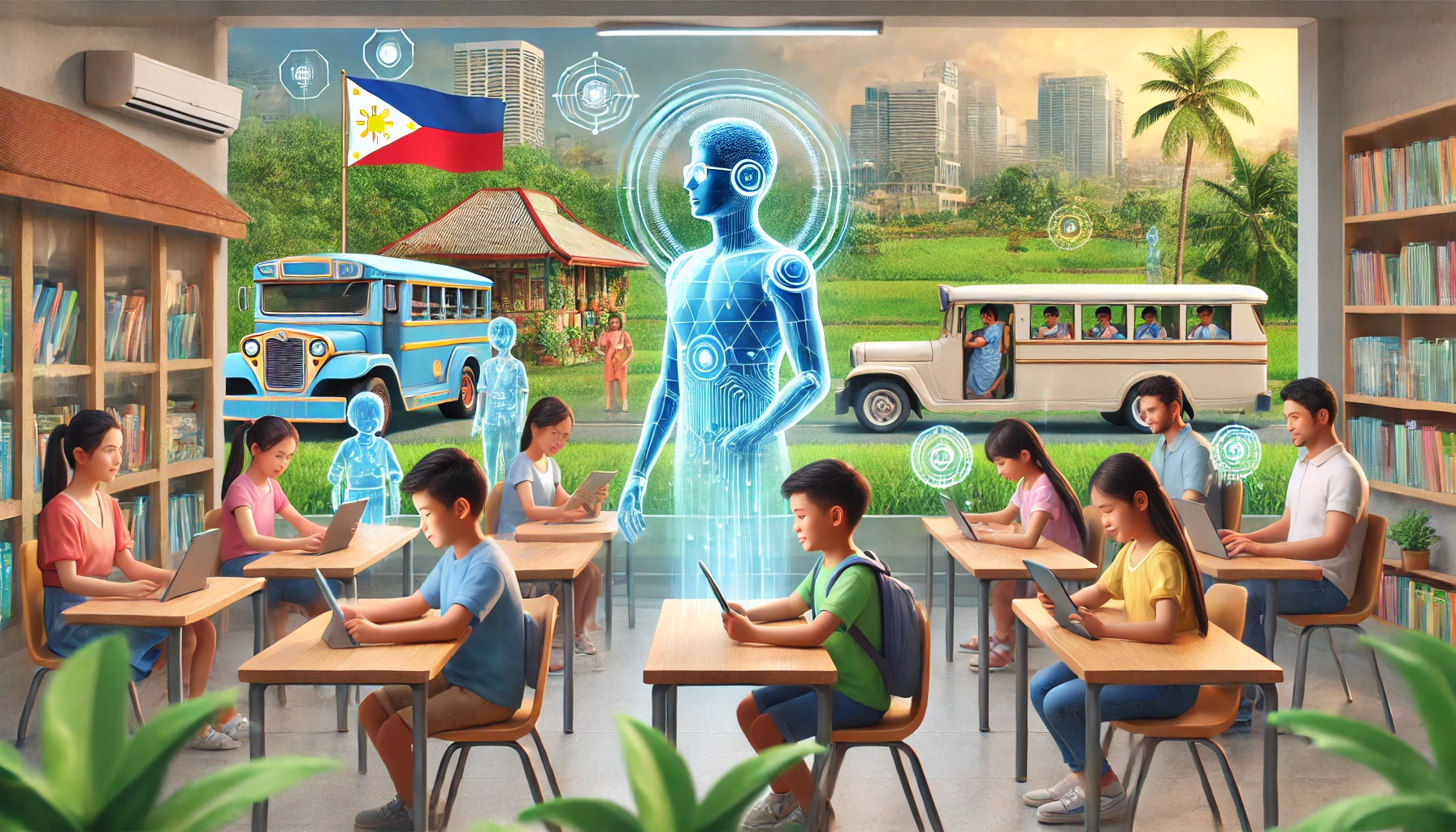Artificial General Intelligence (AGI), often regarded as the next frontier in artificial intelligence, promises transformative opportunities across various sectors. For schools in the Philippines, integrating AGI into the educational system not only enhances learning outcomes but also creates avenues for profitability. By strategically leveraging AGI, educational institutions can become more efficient, improve their offerings, and generate revenue. Here’s how schools in the Philippines can profit from AGI.
1. Personalized Learning Experiences
AGI can analyze vast amounts of student data to deliver tailored learning experiences. By identifying strengths, weaknesses, and preferences, AGI-powered platforms can provide customized lesson plans and study materials. Schools can:
- Offer Premium Tutoring Services: Charge students for advanced AGI-driven tutoring sessions that cater to their specific learning needs.
- Monetize Adaptive Learning Tools: Develop or license AGI-driven learning applications for use by students and partner schools.
2. Streamlined Administrative Processes
Schools often struggle with administrative inefficiencies. AGI can automate tasks such as admissions, payroll, scheduling, and attendance tracking. By doing so:
- Reduce Operational Costs: Savings from streamlined operations can be reinvested into facilities or programs, boosting the school’s marketability.
- Outsource AGI Solutions: Develop proprietary AGI systems that other institutions can use for their administrative needs, creating an additional revenue stream.
3. Enhanced Teacher Training Programs
AGI can simulate real-world classroom scenarios, enabling teachers to practice and improve their skills. Schools can profit by:
- Providing AGI-Driven Training: Offer these cutting-edge teacher training programs to educators from other institutions for a fee.
- Hosting Workshops and Certifications: Develop AGI-focused teaching methodologies and certify teachers, positioning the school as a thought leader in education technology.
4. Expansion of Online and Hybrid Learning
The shift toward online learning, accelerated by the pandemic, is here to stay. AGI can manage virtual classrooms more effectively by personalizing interactions, tracking progress, and providing immediate feedback. Schools can:
- Offer Subscription-Based Online Courses: Create AGI-facilitated online courses that cater to a wider audience beyond the school’s geographical boundaries.
- License AGI-Integrated Learning Platforms: Partner with other schools or companies to distribute AGI-powered platforms and generate licensing fees.
5. Data-Driven Decision Making
With AGI’s ability to analyze complex data, schools can optimize decision-making processes, such as identifying popular courses, forecasting enrollment trends, and managing resources efficiently. Profitable applications include:
- Consulting Services: Use AGI insights to advise other schools or educational stakeholders on data-driven strategies.
- Develop Predictive Models for Market Trends: Partner with policymakers and educational organizations to share actionable insights for a fee.
6. Creation of Intellectual Property
Schools can collaborate with AGI developers to create proprietary educational content, tools, and systems. This intellectual property can be monetized through:
- Publishing AGI-Generated Materials: Produce textbooks, workbooks, and other resources tailored to different curricula.
- Licensing AGI Algorithms: Partner with tech companies or government agencies for the use of the school’s AGI advancements.
7. Public-Private Partnerships
AGI presents an opportunity for schools to engage with corporations and government entities. Schools can:
- Develop Joint AGI Projects: Collaborate on initiatives that promote AGI integration into education, securing funding or profit-sharing arrangements.
- Partner with Startups: Serve as a testing ground for AGI-based educational tools in exchange for equity or revenue sharing.
8. Global Competitiveness and Branding
Schools in the Philippines can attract international students and collaborations by positioning themselves as leaders in AGI-integrated education. Revenue can be generated through:
- Higher Enrollment Fees for AGI-Enhanced Programs: Charge a premium for students accessing AGI-driven learning.
- Franchising Educational Models: Offer AGI-integrated curricula and systems to schools abroad under a franchise model.
Challenges and Considerations
While the potential for profitability is immense, implementing AGI requires careful planning and significant investment. Schools must address challenges such as:
- Infrastructure Readiness: Ensure access to stable internet and AGI-compatible devices.
- Ethical Concerns: Establish guidelines for data privacy and equitable access to AGI tools.
- Teacher and Staff Training: Equip educators and administrators with the skills to manage and utilize AGI effectively.
Conclusion
Artificial General Intelligence holds the promise of revolutionizing education in the Philippines. By embracing AGI, schools can not only improve their teaching methodologies and administrative efficiency but also create sustainable profit streams. As the education sector becomes more competitive, those who pioneer AGI adoption will position themselves as leaders, offering unparalleled value to students and stakeholders alike.
The future of education lies in innovation, and AGI is the tool to unlock its potential.
[SEO optimized]


